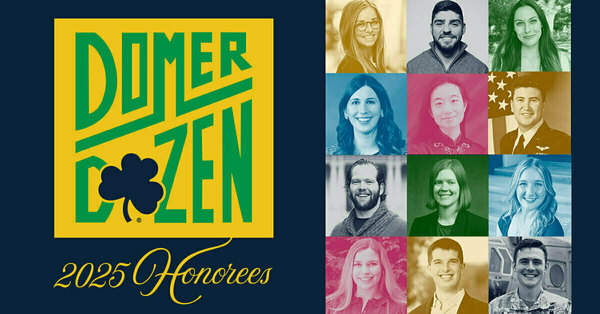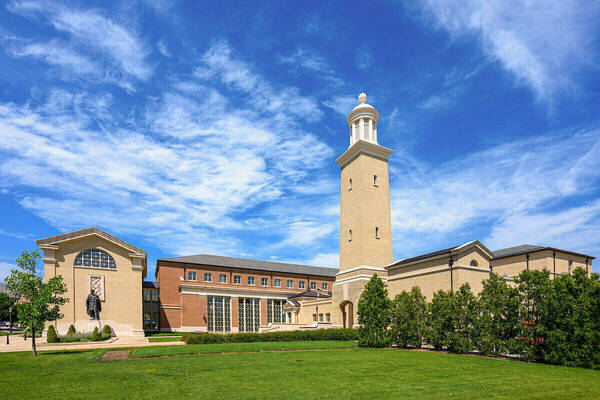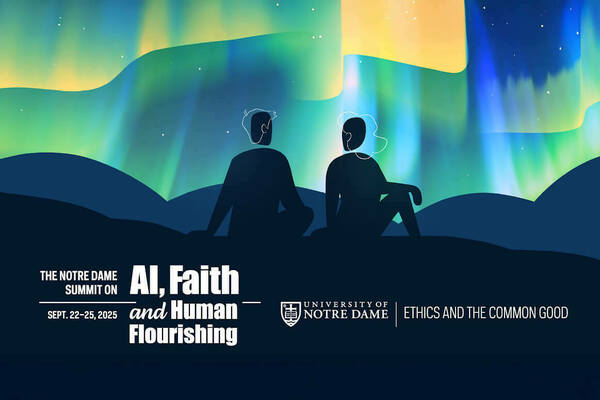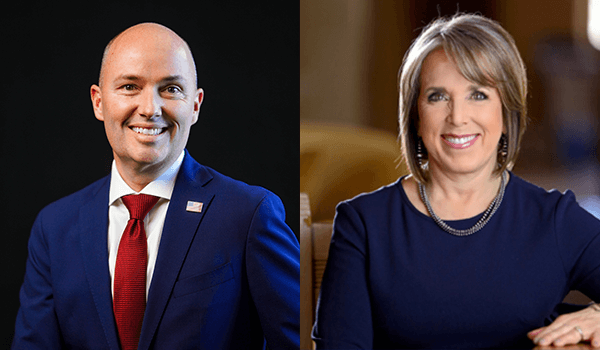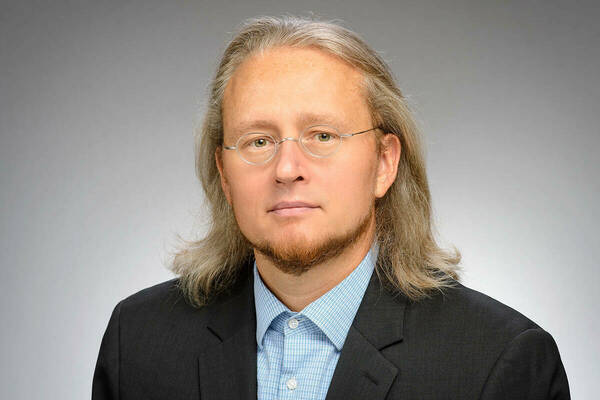Faculty receive prestigious early career awards from National Science Foundation
During the 2024-25 academic year, four researchers in the University of Notre Dame’s Colleges of Engineering and Science received early-career awards from the National Science Foundation (NSF).
The Faculty Early Career Development (CAREER) Program is one of the NSF’s most prestigious awards in support of junior faculty who exemplify the role of teacher-scholars through outstanding research, excellent education and the integration of education and research in the context of their organization’s mission.
Jeffrey F. Rhoads, the John and Catherine Martin Family Vice President for Research and professor in the Department of Aerospace and Mechanical Engineering, said, “We congratulate these exceptional faculty members for the recognition that the CAREER award bestows upon their work, which is both inventive and ambitious. Notre Dame’s success with this program is a testament to both the groundbreaking research conducted here and the translation of this work into our classrooms and communities, investments in both current innovation and future talent for our nation.”
This year’s CAREER award recipients are:

Fanxin Kong, assistant professor in the Department of Computer Science and Engineering
Kong will conduct a project titled “Security Foundations of Safe Learning Enabled Cyber-Physical Systems.” Kong will study new security vulnerabilities of learning-enabled cyber-physical systems and develop novel defense techniques to enhance real-world safety. Kong will evaluate the deployment of these techniques on multiple applications including autonomous vehicles and other robotic systems, with the goal of helping ensure the reliable operation of cyber-physical applications in the real world.
To promote student interest in cyber-physical systems, Kong and his team will integrate their research into educational programs at all levels, including summer learning opportunities with programmable robotic cars for K-12 students, as well as an annual robotics challenge and additional research programming for undergraduates at Notre Dame.

Xiaolong Liu, assistant professor in the Department of Physics and Astronomy
Liu’s project, “Atomic-scale Josephson Spectroscopic Imaging of Unconventional and Non-reciprocal Superconductivity,” will examine the directionality of electron flow in superconductors at the atomic level, with the objective of gaining insight into the very nature of superconductivity and its underlying mechanisms.
At the same time, Liu will broaden the educational impact of superconductor research through a STEM Teachers residency program, during which middle school teachers will participate directly in research and co-develop curriculum materials. Liu’s group will also design and construct demonstration setups for use in classrooms, research facilities and museums.

Marc Osherson, assistant professor in the Department of Physics and Astronomy
Osheron will conduct a project titled “Probing low mass final states with the CMS detector,” targeting complex particle interactions predicted by theories that go beyond the current foundational theory of particle physics, called the Standard Model. At the Compact Muon Solenoid detector (CMS), one of the four main detectors at the CERN Large Hadron Collider (LHC), in Geneva, Switzerland, Osherson will develop advanced data analysis techniques, including re-imagining facial recognition tools to help interpret complex data produced by the CMS detector, with the goal of uncovering novel particles and interactions.
Simultaneously, Osherson will integrate his research into outreach programming tailored for high school students and teachers, including promoting greater participation in QuarkNet’s virtual particle physics workshops.

Nicholas Ramsey, assistant professor in the Department of Mathematics
Ramsey will conduct a project titled “Model theory, independence, and approximation.” Ramsey is specifically interested in smoothly approximable structures, which are infinite geometries that can be seen as “limits” of finite geometric structures. Drawing inspiration from smoothly approximable structures, Ramsey will develop the necessary tools to understand and explore even more complex analogues of these geometries, which will enable meaningful applications to algebra, representation theory and combinatorics.
Alongside his research, Ramsey will expand educational access to model theory by organizing a summer school for graduate students at Notre Dame, as well as collaborating with students in world regions where learning exposure to high-level mathematical logic is limited.
Since the program’s inception in 1995, NSF CAREER awards have been given to 147 researchers at the University of Notre Dame. To learn more, visit the NSF’s information page.
Latest ND NewsWire
- Alumni Association and YoungND honor 2025 Domer DozenThe Notre Dame Alumni Association announced its 2025 Domer Dozen cohort, honoring 12 graduates ages 32 and younger for excellence in their contributions in learning, service, faith and work — the core pillars of the association’s mission.
- Notre Dame School of Architecture poised for global leadership through historic investmentThe $150 million gift represents an unprecedented commitment in the 160-year history of American architectural education. In recognition of this landmark gift, the school will be renamed the Matthew and Joyce Walsh School of Architecture at Notre Dame.
- Banks that identify fraudsters increase loyalty, retain more defrauded customers than others who never were compromisedIn a new research study, Vamsi Kanuri, the Viola D. Hank Associate Professor of Marketing at the University of Notre Dame’s Mendoza College of Business, found that banks that identify fraudsters earn customer loyalty and lose customers if they can’t say who was responsible for a fraudulent transaction.
- Notre Dame to host summit on AI, faith and human flourishing, introducing new DELTA frameworkThe Institute for Ethics and the Common Good and the Notre Dame Ethics Initiative will host the Notre Dame Summit on AI, Faith and Human Flourishing on the University’s campus from Monday, Sept. 22 through Thursday, Sept. 25. This event will draw together a dynamic, ecumenical group of educators, faith leaders, technologists, journalists, policymakers and young people who believe in the enduring relevance of Christian ethical thought in a world of powerful AI.
- Notre Dame Democracy Initiative hosts bipartisan conversation with Western state governorsTwo Western state governors known to work across the aisle on policy issues such as water, housing and energy will visit the University of Notre Dame for a fireside chat about how Western state pragmatism can serve as a model for the country to overcome polarization.
- In new research, Roy Scranton explores climate change and the limits of human progressIn his most recent book, “Impasse: Climate Change and the Limits of Progress,” Scranton, an associate professor of English, defines the impasse he sees as “not only political and institutional, but cognitive, existential and narrative” and asserts that the only path forward is through embracing what he terms ethical pessimism. “A lot of people confuse pessimism with nihilism, apathy and despair,” Scranton said. “But pessimism is actually about recognizing our limits, letting go of unrealistic goals, finding solidarity in the fact of human suffering and doing what you can now, not in some utopian future.








